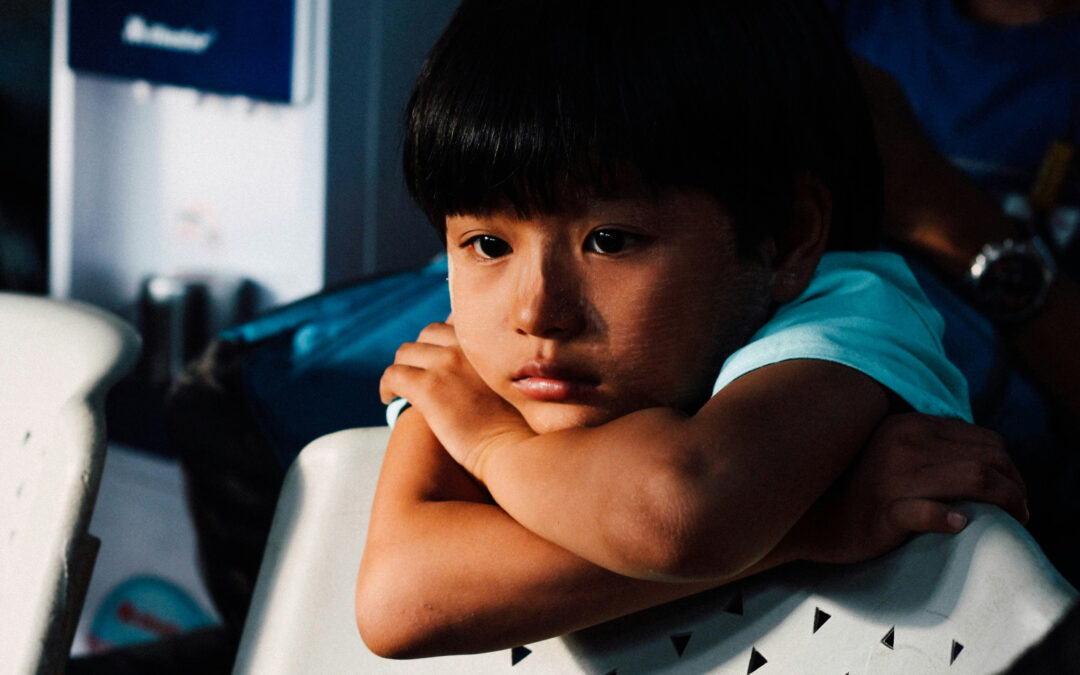Austin
Child
Counseling

AFC Partners with Parents for Success
For many parents, the process of introducing their child to therapy is both an exciting and nerve-wracking endeavor. You may wonder what therapy with your child will look like and how you are going to be involved. At Austin Family Counseling, we strive to create a working relationship between parents, children and the therapist you are working with.
The first session of your child’s therapy journey will be conducted with the parents and therapist only (your child will not attend this session). This gives you the opportunity to meet the therapist, give some background information about your child and make sure they are the right fit for your child and family.
After this parent session, the therapist will meet with your child individually. In order to preserve your child’s confidentiality and the therapeutic relationship, we do not allow parents to sit in on their child’s sessions. However, we want parents to feel comfortable and involved in the process. To achieve this goal, our therapists will conduct regular follow up parent sessions, the frequency of which is determined by the unique needs of your family. During these sessions the therapist will provide you with a general overview of some of the major themes that are being processed in the individual sessions and give you a chance to share any new developments you are seeing at home. If at any point it is deemed helpful, the therapist may also bring parents or siblings in for family sessions to help support your child.
Are You Worried About Your Child’s Behavior or Emotional Well-Being?
- Is your son or daughter having difficulty getting over a divorce, perhaps saying that he or she hates you and wants to live with the other parent?
- Do teachers regularly call to report your child’s poor grades, attention-seeking behavior or inability to get along with peers?
- Have your child’s tantrums become so dramatic that you’ve started to feel helpless and defeated?
- Do you worry that parents, teachers or even strangers on the street are judging you because of your child’s behavior?
- Does your child display a level of aggression that shocks you, perhaps often hitting siblings or classmates?
- Does your child claim to hate him or herself, perhaps even threatening to commit acts of self-harm?
- Do you wish you knew how to connect with and help your child, but fear that it may be too late to establish healthy boundaries?
Seeing your child struggle emotionally, socially, or academically can be an extremely upsetting and frustrating experience. And, it can sometimes be difficult to determine what your child is experiencing is a phase that he or she will grow out of or if something more serious is occurring.
Perhaps you have been noticing worrisome personality changes in your child. Your child’s behavior might be defiant, obstinate and withdrawn, or he or she might be behaving in ways that are aggressive or shocking. Fighting and yelling might be regular occurrences in your household. When you wake your child in the morning, you may find that your son or daughter refuses to get out of bed, cries incessantly and pleads to not be sent to school. During the day you might receive reports from the school regarding your child’s missing homework or disruptive behavior. When you pick your child up in the afternoon, he or she may be visibly upset, but refuse to speak about what happened that day at school. When evening rolls around, there may be more arguing and fighting with your child. The two of you might regularly have late nights at the kitchen table where you struggle to complete homework. At that point, your child might start to engage in negative self-talk, perhaps expressing self-hatred.
By now you may feel helpless, powerless and defeated as a parent. You may wonder how your child will ever develop into a happy, healthy adult. Perhaps you desperately long to take away your child’s pain, but fear you may not have the tools to do so.
Most Moms and Dads Struggle With Parenting
People who struggle with a child’s defiant, angry or obstinate behavior often feel as though they have failed as parents. However, most parents experience difficulties while raising children. Parenting is a struggle, and it may be the most challenging job you have or will ever have in your lifetime.
While you may sometimes feel hopeless, it’s important to remember that your child is still developing. There’s still a lot of room for change. Everyday your child is learning new social, academic and emotional skills. You probably don’t do something perfectly the first time you learn it, so why would you expect otherwise from your child?
However, some behavioral problems are more than just growing pains. If your child is struggling to cope with a recent divorce or death in the family, if you are feeling helpless, hopeless and defeated as a parent, or if your son or daughter is lashing out with aggression, it may be time to seek the advice of a professional. Thankfully, Austin Family Counseling (AFC) can provide your family with the support it needs.
Child Counseling Can Teach The Whole Family New Life Skills
Child counseling can be a very effective way to help families who are struggling with a child’s difficult behavior. Almost every family can benefit from counseling, regardless of whether their problems are “large” or “small.” Sometimes simply getting an outside, unbiased perspective can be extremely beneficial. We offer a compassionate, professional, non-judgmental environment where your voice will always be heard and your emotions will be honored and validated. You’ll be free to share your worries, fears and frustrations and be able to converse with a professional who knows and understands what you’re going through. You can also learn new parenting skills—such as positive reinforcement, age-appropriate communication, and boundary setting—in addition to the tools you already have.

During sessions, your child can express uncomfortable fears, emotions, thoughts and experiences through play, art and sand-tray therapy. These hands-on, developmentally appropriate therapies can help your son or daughter communicate in ways that feel safe, approachable and easy to understand. In addition, your child can learn to recognize and verbalize emotions, which can help your child slow down troublesome interactions and refrain from lashing out with physical or verbal aggression. With these tools in hand, your child can begin to recognize anger signals, take steps to cool down before things get out of control and use self-calming techniques to better manage negative emotions. By learning these techniques, your child can cultivate better relationships with siblings, teachers and peers and learn a set of interpersonal skills that can last a lifetime. Finally, if your child is currently dealing with a divorce or family trauma, our therapists provide a safe environment for expressing emotions where he or she can grieve and process the changing environment.
As experienced therapists, we can tell you there’s still time for your child to develop into a happy, healthy adult. Childhood is wrought with challenges, but things really do get better. With the help of an empathic, confidential and nonjudgmental therapist, your child can increase self-esteem and learn important emotional life skills that can help him or her navigate adolescence and the world beyond.
Perhaps You’re Ready To Try Child Counseling But Still Have Questions and Concerns…
Child counseling is too expensive.
Child counseling will be an investment into your son or daughter’s wellbeing. If left untreated your child’s problems are only likely to worsen over time. They may carry over into adolescence, when they can become much more difficult to manage. This can lead to untold costs down the road.
My child’s problems aren’t that bad. We can get through this on our own.
If your child’s tantrums are growing more dramatic by the day, if you’ve needed to change schools because of aggressive behavior from your child, or if your child seems withdrawn, moody or depressed or has expressed feelings of self-hatred, it’s time to try some new strategies. There’s no shame in utilizing child counseling services. Countless families have engaged in counseling and developed the tools and insights needed to make effective changes and experience more harmony within the home.
I’m worried I’ll find out I’m a bad parent.
Stop beating yourself up! You wouldn’t bother looking up counseling for your child if you were a “bad parent. ” By visiting this website, you’ve already demonstrated that you are dedicated to becoming the best parent you can be.
It’s Never Too Late To Help Your Child
With the help of child counseling, it’s possible to get back the child you used to know and experience a more peaceful environment where your child’s emotions are acknowledged and understood.








